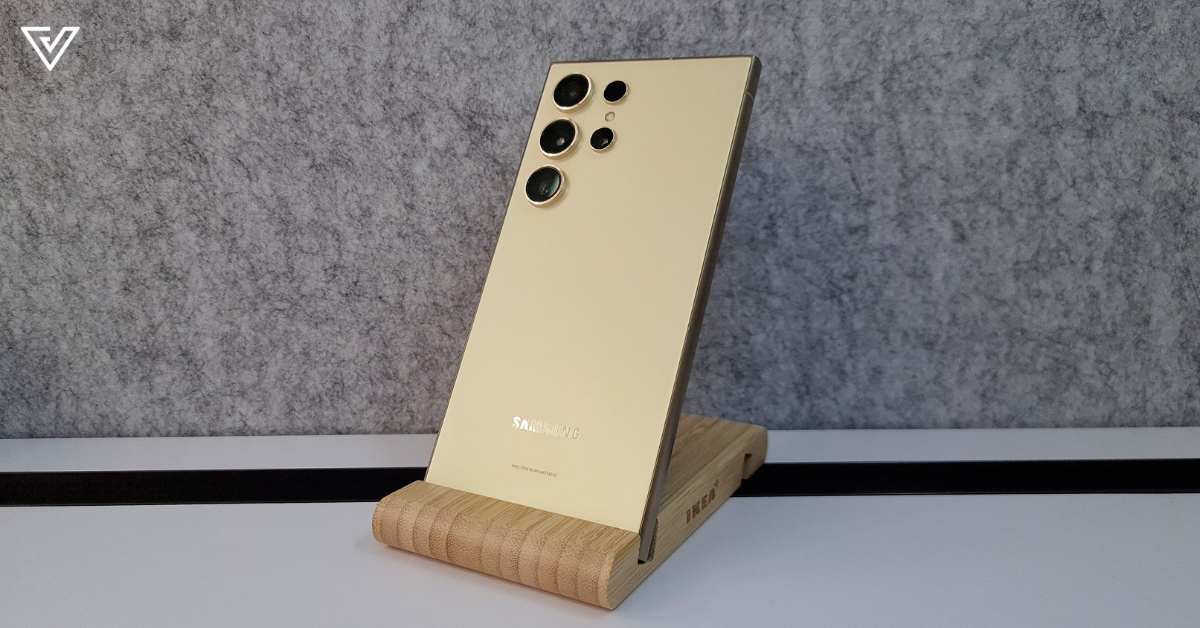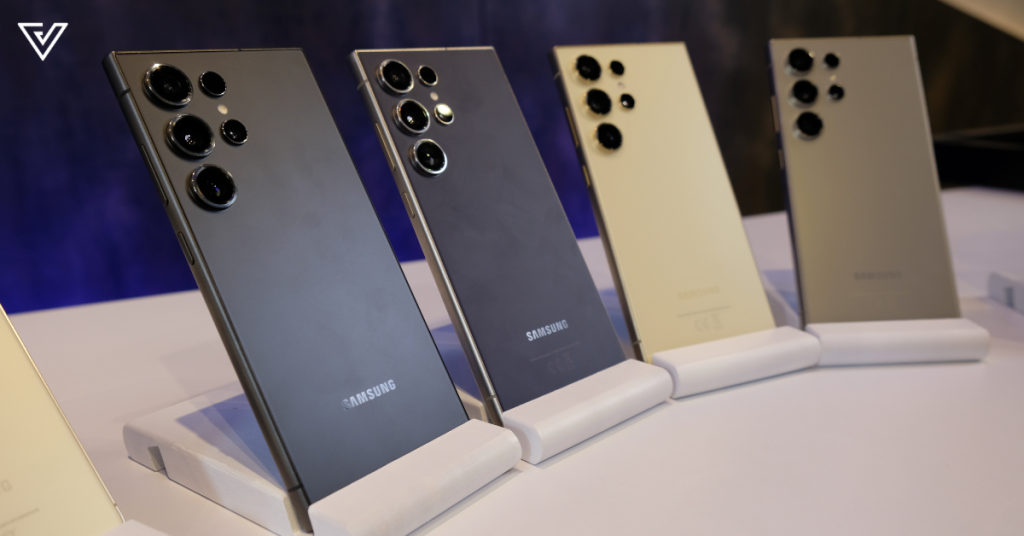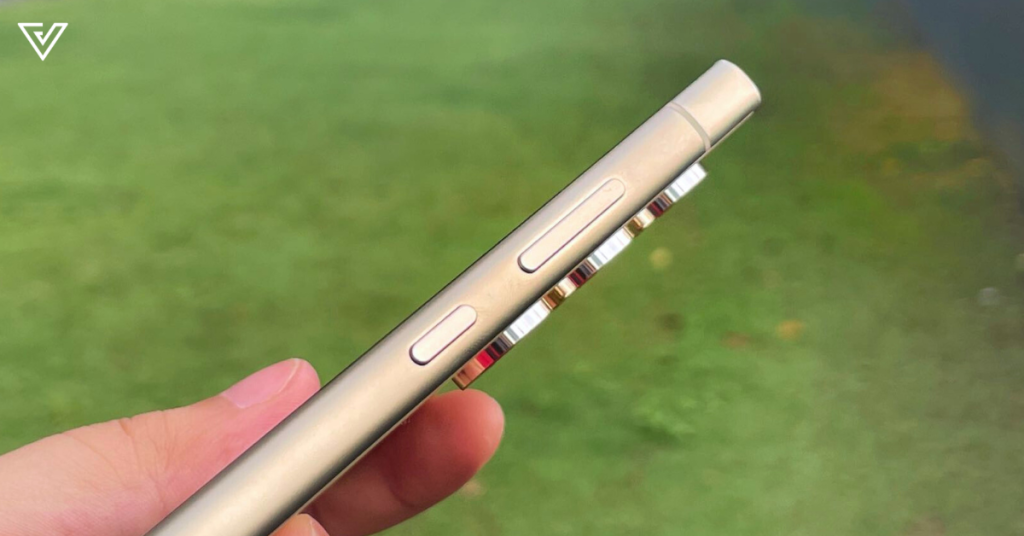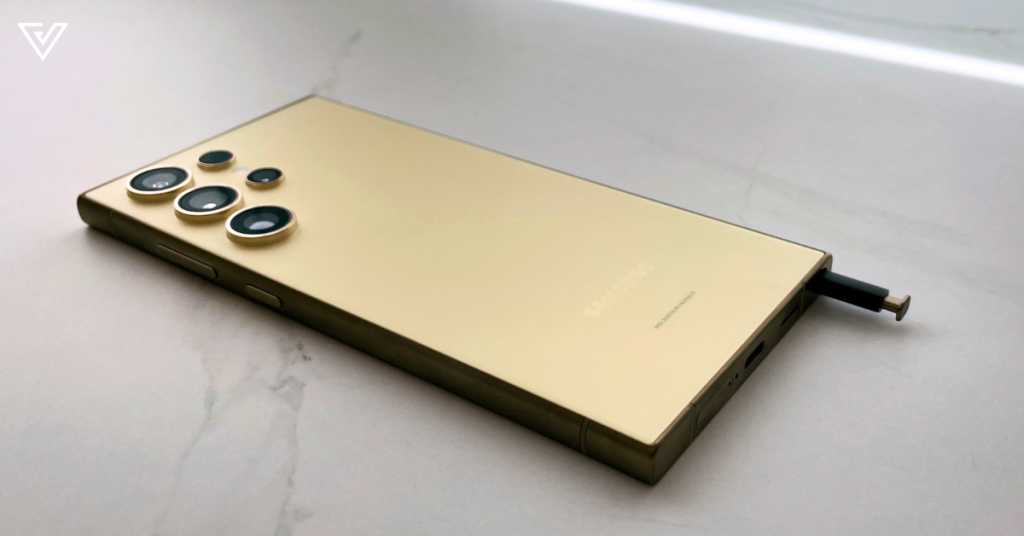Hands on with the RM6,799 Galaxy S24 Ultra that marks Samsung’s new era of AI
The Samsung Galaxy S24 Ultra has just launched, here are our first impressions of the phone's looks, Galaxy AI features, and camera.

I haven’t spent long with the Samsung Galaxy S24 Ultra yet, but I definitely already have some thoughts on the phone.
Our spanking new S24 Ultra came in the Titanium Yellow, though it’s closer to a creamy white, really.
Other colourways include Titanium Gray, Titanium Black, and Titanium Violet. There are also three online-only exclusive shades, namely Titanium Blue, Titanium Green, and Titanium Orange.

Looks-wise, it remains similar to its predecessor, keeping the one-mass design of the S23 Ultra.
Titanium has been used by some phone makers to lighten up their phones, which is technically true in this case. Compared to the S23 Ultra, the S24 Ultra is 2g lighter, clocking in at 232g.
As a comparison, though, the iPhone 15 Pro is 187g.
It’s a little edgier than the previous phone, though, and we mean that literally. Samsung decided to do away with the curved edges, making the display as flat as can be.
It’s not a big issue, but I do feel like paired with the sheer size of the phone (162.3mm x 79.0mm), it makes it slightly more awkward to grip, especially for smaller hands. However, I’ve also heard some say this makes the phone less slippery.

But enough about its hardware, let’s talk about the arguably more exciting stuff—the software, including the all-new Galaxy AI.
So many features, where do we start?
We already got to see a number of the new AI features in person at Samsung’s media briefing, which you can read about here. But how well do they perform in the real world?
As a writer at Vulcan Post, I frequently interview people. While there are AI tools out there that can help transcribe my recordings, I usually find the uploading tedious, so I was more than excited to hear that Galaxy AI features transcription solutions in its own Voice Recorder.
I managed to test this out during an in-person interview. The recording went on for about an hour or so, but thankfully, unlike the previous transcription tool Samsung had, Galaxy AI can handle that length.

However, while waiting for the transcription to load, I noticed the phone got pretty hot, which was surprising as I know the new phone has bigger vapour chambers to stay cool. It took about 6 to 7 minutes for the transcript to finish loading.
As for the results, I must say that it wasn’t as perfect as I had hoped for it to be. There were quite some errors in the transcription, but then again, there were jargon and accents at play, as well as ambient noise.
There’s also a summary tool that actually works pretty well. Given, because the source material is already inaccurate, there were some weird notes, but there were a few areas where it managed to aptly summarise what was being discussed.
Rolling out so many new AI tools is a bit overwhelming, though. While the transcription makes a lot of sense for my profession, I wonder if it’ll get a whole lot of use from the average person.
This seems to be the question with a lot of the other tools, such as the live call translations as well as the tone tweak tool that lets you adjust the tone of your message before sending.
But the more specific features aside, there’s no doubt that functions such as text translations, note summarisation, and Circle to Search (circling an object on your screen will run it through Google Lens) will get a fair amount of use through time. So, be sure to check back in for a deeper dive into these new mechanics.
What about the cams?
With Galaxy AI as the current star of the show, you might wonder whether the cameras are taking a backseat. Well, specs-wise, it’s mostly the same, with a 200MP wide (main) camera, a 10MP telephoto camera, and a 12MP ultrawide camera.
What got a facelift, though, is the periscope telephoto, which went from 10MP to 50MP. That means optically zoomed-in pics now boast a higher quality.
More than the cameras, it’s once again the new AI features that piqued my curiosity, though. Specifically, I wanted to try the generative AI tools in the photo editor.
Essentially, one new feature is that the phone will fill in the background when you rotate a photo. You can also erase objects or remove reflections and shadows in images.
 We purposely took a skewed image to test the generative fill function when we straightened it. In the edited image, which is on the right, the phone generated an odd-looking marble texture on the left edge. Can you spot it?
We purposely took a skewed image to test the generative fill function when we straightened it. In the edited image, which is on the right, the phone generated an odd-looking marble texture on the left edge. Can you spot it?The generative fill works wonders in simple images, such as with plain backgrounds. With the tilt function specifically, though, that’s already been something that free editing apps like Google’s Snapseed have been able to do.
When it comes to complex images, Galaxy AI is still not perfect or as intuitive as I’d like.
A solid impression
Something else to note is that Samsung has promised seven years of OS updates and security patches, which is a pretty big deal. Longer support for the phone may be the factor that makes or breaks one’s purchase, as it can affect resale value and longevity for the users.
But as mentioned, we haven’t used the phone for very long, so there are a lot more cool features that we haven’t fully put to the test. Like the AI features, that’s still a work in progress.
So, stay tuned for a more in-depth look at the feature-packed Galaxy S24 Ultra.
Learn more about the Samsung Galaxy S24 Ultra here. Read other articles we’ve written about Samsung here.
 Aliver
Aliver 































